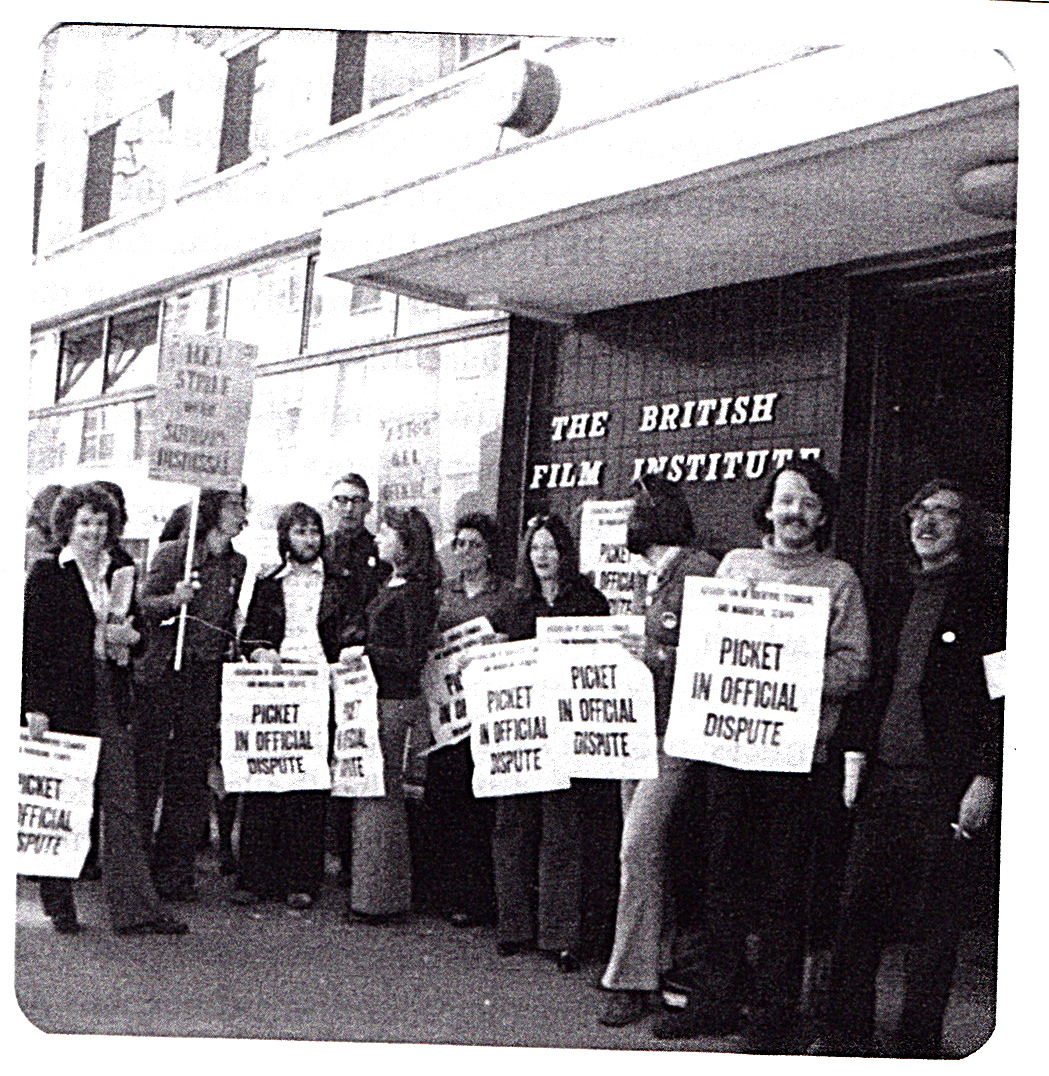That’s me on the extreme right, next to my new boss at the time, Richard Combs. The address is 81 Dean Street, the main headquarters at the time of the British Film Institute. I’d started my new job there as assistant editor of Monthly Film Bulletin on August 5, working under Richard, and had joined the staff’s trades union, ASTMS, around the same time. But only a week or so later, after the National Film Archive’s acting curator, Kevin Gough-Yates, was summarily sacked, I attended my first union meeting, and seconded the motion that we go on strike to protest management’s refusal to follow proper procedures.
Our strike lasted a couple of weeks, and, as I recall, it was mainly successful. For me, it was an ideal way to get to know many of my fellow staffers at the BFI, and I also successfully collared Otto Preminger, emerging from an editing studio next door, where he was working on Rosebud, to sign our petition. (I had watched a morning’s shoot on Rosebud in Paris a month or so earlier and had been part of Preminger’s lunch party, so he remembered me.) According to Geoffrey Nowell-Smith in The British Film Institute, the government and film culture, 1933-2000, a recent book from Manchester University Press that he coedited and partially wrote (which is where this photo comes from), “Preminger sent a message from his suite at the Dorchester Hotel”. Maybe so, but that isn’t the way I remember it. I also remember that it was less fun when Richard and I went down to the National Film Theatre on the South Bank in order to try to persuade various patrons not to attend an ongoing Raoul Walsh retrospective — something we would have liked to have attended ourselves.
Geoffrey’s account, however, matches my own memory more precisely when he reports that “Vanessa Redgrave turned up on [our] picket line to canvass for the Trotskyite group the Workers’ Revolutionary Party which was solidly embedded in the film and television industries.” (I also recall that we ignored her suggestion that we skirmish with the London police in order to gain more headlines.) He’s also right to remember that Colin McArthur, the Communist head of Film Availability Services, crossed our picket line while quoting (if I remember it rightly) Lenin. Meanwhile, Penelope Houston, the editor of Sight and Sound, who wasn’t in the union, kindly came downstairs every day to deliver the mail to her own assistant, David Wilson, who headed our union, as well as to Richard and me. [2/19/13]

